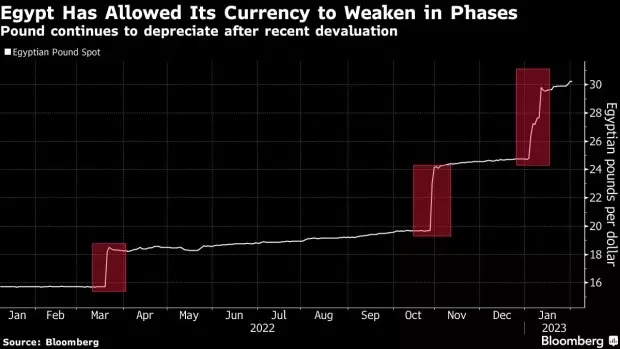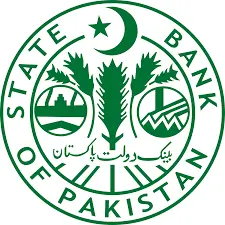Cairo February 3 2023: Egypt’s central bank unexpectedly kept interest rates unchanged for the first time since September, as the government of one of the Middle East’s most indebted nations struggles to lure back investors and already faces growing borrowing costs.
The Monetary Policy Committee maintained the deposit rate at 16.25% and the lending rate at 17.25%, according to a statement Thursday. Only three of 10 economists surveyed by Bloomberg predicted the decision, while the rest expected Egypt’s third straight hike.
The MPC said it was monitoring the effects of last year’s cycle of monetary tightening on inflation that’s at its highest since 2018. The move follows a combined 800 basis points of rate increases in 2022, alongside the recent scrapping of subsidized lending to some sectors.
“The MPC decided to maintain key policy rates unchanged in today’s meeting in order to assess the impact of the implemented front-loaded tightening policies in a data-driven manner,” it said.
A hike in local fuel prices is widely thought to be imminent and would add further strain on the country that’s a major food importer and has been plunged into economic hardship by Russia’s invasion of Ukraine.
The North African nation’s government says tackling soaring prices for food and other commodities is its top priority. Annual inflation surged to 21.3% in December, while a roughly 18% plunge in the Egyptian pound’s value against the US dollar last month makes further acceleration all but certain.
In a sign of pressures on Egypt, the yield on the government’s 12-month Treasury bills rose to a record high of more than 22% at an auction just hours before the rate announcement. And demand from investors remains sluggish as they bid for only 1.1 times the amount of securities on offer.
Inflation figures for January are due in the coming week. The central bank targets an average figure of 7%, plus or minus 2 percentage points, by the fourth quarter of 2024.
The decision on Thursday doesn’t mean further monetary tightening is off the table. The central bank still needs to help buttress the pound, encouraging a return of portfolio investment that brings in much-needed overseas funds.
The Egyptian currency has lost about half its value since last March amid a severe foreign-currency crunch. The gradual shift to a flexible exchange rate has helped authorities secure a $3 billion International Monetary Fund deal.
Authorities said at the weekend they’d cleared a backlog of foreign goods that had been stuck at its ports for months due to a shortage of dollars.
“Further tightening of the monetary stance may have been justified in order to manage inflation expectations in the aftermath of the depreciation of the Egyptian pound over the past month and upcoming upward fuel price adjustments,” said Farouk Soussa, an economist at Goldman Sachs Group Inc. “Higher rates may also be needed to stimulate further portfolio inflows.”










